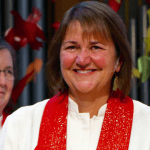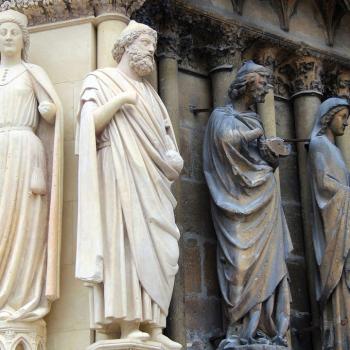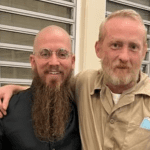
Being in congregational ministry means dealing in death. Actually, being alive means dealing with it. At its best, religious community helps bear witness to the entire cycle of life, from miraculous beginnings to often-difficult ends. And as the average age in Christian congregations continues to rise, the work of institutional and personal hospice for ministerial leaders demands more time and energy.
The one thing my wife, Rev. Amy Piatt, was most worried about facing in ministry was death. Then within the first few weeks of arriving in Colorado to start a new church, her uncle died. Her dad (also a pastor) was out of town, so the family turned to her to step up. She was fresh out of seminary, and Billy had been a prominent community figure. Hundreds showed up to his memorial service, which was held in the local convention center.
Amy was terrified, but suffice it to say it helped her take on her “death hangup” straight away. And over time she’s learned that she’s really great at dealing with death. She’s learned to see the beauty and the miracle in the midst of a difficult, sometimes painful, often tragic experience.
Plenty of people don’t see it that way, though.
In so many ways in our culture, death is seen as failure, accession to the frailty of the human condition which we struggle to ignore, deny or forestall, but which pursues us relentlessly until the will or means to outrun it is exhausted.
We’ve lost. Death wins.
When it comes to church, or even just particular traditions, ideologies or structures, there is other baggage attached to the experience of death. It’s particularly hard when we’ve been given the weight of stewardship of something that preceded us, only to experience it crumbling before us, in many ways beyond our control. Where so many have prevailed, we’re failing. There’s a sense of defeat, shame and tragic loss.
My friend, Eric, who himself is a pastor, noted that this is particularly painful when it comes to our personal beliefs. While some of us may see the transition to being open and affirming of, say, our LGBTQ sisters and brothers as intuitively right, historically inevitable or even spiritually compelling, Eric pointed out that the loss of traditions and ideologies some have held as central not only to their faith lives but to their identities as people for so long is experienced much like any other death.
So while some of us lose patience with those who, to us, seem intransigent and even mean in their resistance to change, we’re often blindly insensitive to the grief overwhelming them at the same time. And while we may claim that rejection of full and radical inclusion of all of God’s people in the life of Christian community, how is overlooking or minimizing the experienced death of our other brothers and sisters any more Christlike?
As seekers of wholeness, justice and true reconciliation, we all have to try see beyond the issues that we hold close and pray for more compassionate vision of the world, right around us. Like Dr. King famously said, “Injustice anywhere is a threat to justice everywhere.” Change brings death with it, as well as new life. And we can’t prepare fertile ground for one without also tending to the other.
Christian Piatt is the author of “Leaving A-Holiness Behind” and “PostChristian,” among others. He is the founder and cohost of the Homebrewed CultureCast. Find him on Facebook, Twitter or Instagram.
















